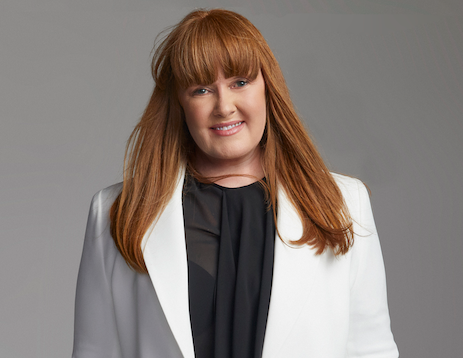If you’re a manager or leader who wants to unlock the potential of your team, one of the best skills that you can learn is how to coach people effectively. Coaching is a powerful modality that empowers a person to tap into their inner wisdom and use those insights to create positive behaviour change and achieve their goals. Like any skill, coaching takes practice, but if you persevere it can be incredibly transformative.
Whether you’re a seasoned professional or just starting your leadership journey, these 10 tips will support you to become a more effective and inspiring coach:
1. UNDERSTAND INDIVIDUAL STRENGTHS
To be an effective coach, take the time to understand the unique strengths of each team member and work with these strengths to get the best results. A coaching relationship is one of encouragement and support, so the more you can be attuned to what that individual does well and shine a light on their strengths for them, the more they will be able to step into their potential. When you really understand the unique strengths of the individual in front of you, you can also tailor your coaching style to align with their needs, providing targeted guidance and support.
2. ACTIVELY LISTEN
Cultivate the art of active listening. Paying close attention to your team members’ concerns, ideas, and aspirations fosters a trusting and collaborative environment. Active listening also ensures that you are on the same page as your team member and dealing with an agreed upon issue or goal, rather than making any assumptions about what you think the challenge, problem, or aspiration may be. You can practice active listening by summarising what the person has said to you and clarifying that you’ve understood them correctly before continuing the conversation.
3. SET CLEAR GOALS
Clearly defined goals create a roadmap for success. It’s important to work collaboratively with your team members to establish goals that align with both an individual’s aspirations as well as the organisational objectives. As a leader, it’s up to you to make the link between the organisation’s objectives and the individual’s role clear, as this will assist in setting those goals. A helpful framework that we use in the Women Rising program to structure a person’s goals and make sure they are aligned and purposeful, is Angela Duckworth’s grit map.
4. ASK POWERFUL QUESTIONS
An essential part of being an effective coach is learning how to ask powerful questions. One of the ways in which coaching differs from mentoring, is that where you might give advice as a mentor, share your personal experience and how you would approach a specific situation, as a coach, it’s not about telling a person what to do, or centering your own experience. Rather it’s about asking a powerful question that will allow the person to shift their perspective or gain clarity on the best path forward. Our brains are hardwired to seek answers to the questions we ask, so your ability to ask powerful questions is key to your impact as a coach. This is something that we spend time teaching in the Women Rising Leaders and Coaches Collective program.
5. ENCOURAGE OPEN COMMUNICATION
For a coaching relationship to work well, there needs to be a culture of trust and open communication. As a leader, you have a key role to play in creating an open and inclusive communication culture within your team. Encourage team members to share their thoughts, concerns, and feedback openly, knowing that they are safe to do so. This transparency fosters a sense of belonging and promotes a healthy team dynamic. It’s important that you actively listen and make sure your team knows that their contribution is needed and valued. The way that you respond to their thoughts, concerns and feedback is vital. Make sure you pause and take the time to really consider what’s being shared and how you will deal with it. It’s one thing to say you want your team to communicate openly, but if what a person shares isn’t well received or they feel like they haven’t been heard, they will more than likely shut down those lines of open communication.
6. PROVIDE CONSTRUCTIVE FEEDBACK
Constructive feedback is a cornerstone of effective coaching. Focus on specific behaviours, highlight achievements, and offer guidance on areas for improvement. Check-in to make sure that the team member has understood the feedback and it hasn’t been misinterpreted, which can often happen if a person feels they are being criticised in any way. This is when a person’s negative stories and inner critic dialogue can begin to run rampant and feedback can become misconstrued. Ensure that your feedback is actionable and promotes growth. Invite them to collaborate with you on ways they could begin to implement your feedback.
7. FOSTER CONTINUOUS LEARNING
Encourage a culture of continuous learning within your team. Having a beginner’s mind and being open to learning new things, is what will allow your team members to be coachable. Lead by example by supporting professional development opportunities, providing resources, and creating an environment where acquiring new skills is celebrated.
8. ADAPT YOUR APPROACH
Be flexible in your coaching approach, recognising that individuals may require different strategies for growth. A great coach understands that the person they’re coaching has the answers they need within them and that your role as a coach is to find a way to elicit those answers and collaborate to find the best approach for that particular person. Adapt to changing circumstances and encourage your team to do the same.
9. CELEBRATE SUCCESSES
Acknowledge and celebrate both individual and team successes. This not only boosts morale but also reinforces positive behaviours and achievements. A culture of celebration contributes to a motivated and engaged team. One of the most rewarding aspects of coaching is that it’s a role that supports, encourages and uplifts people so they can build their confidence and believe in themselves. It’s incredibly powerful to witness the personal transformations that you will see as a coach, and celebrating successes is one of the ways to do that.
10. EMPOWER AND DELEGATE
Last but not least, empower your team members by delegating responsibilities and trusting them to take ownership of their tasks. This builds confidence and fosters a sense of accountability and responsibility. It will not only make you a better coach, but a great and inspiring leader.
If you want to learn more about how to accelerate your coaching and leadership goals to create true impact for the women you support, learn more about the Women Rising Leaders and Coaches Collective. This program has been designed to give you the training, coaching and tools to elevate your impact in unlocking women’s potential and be recognised as an expert in the fastest growing women’s leadership program on the planet.


